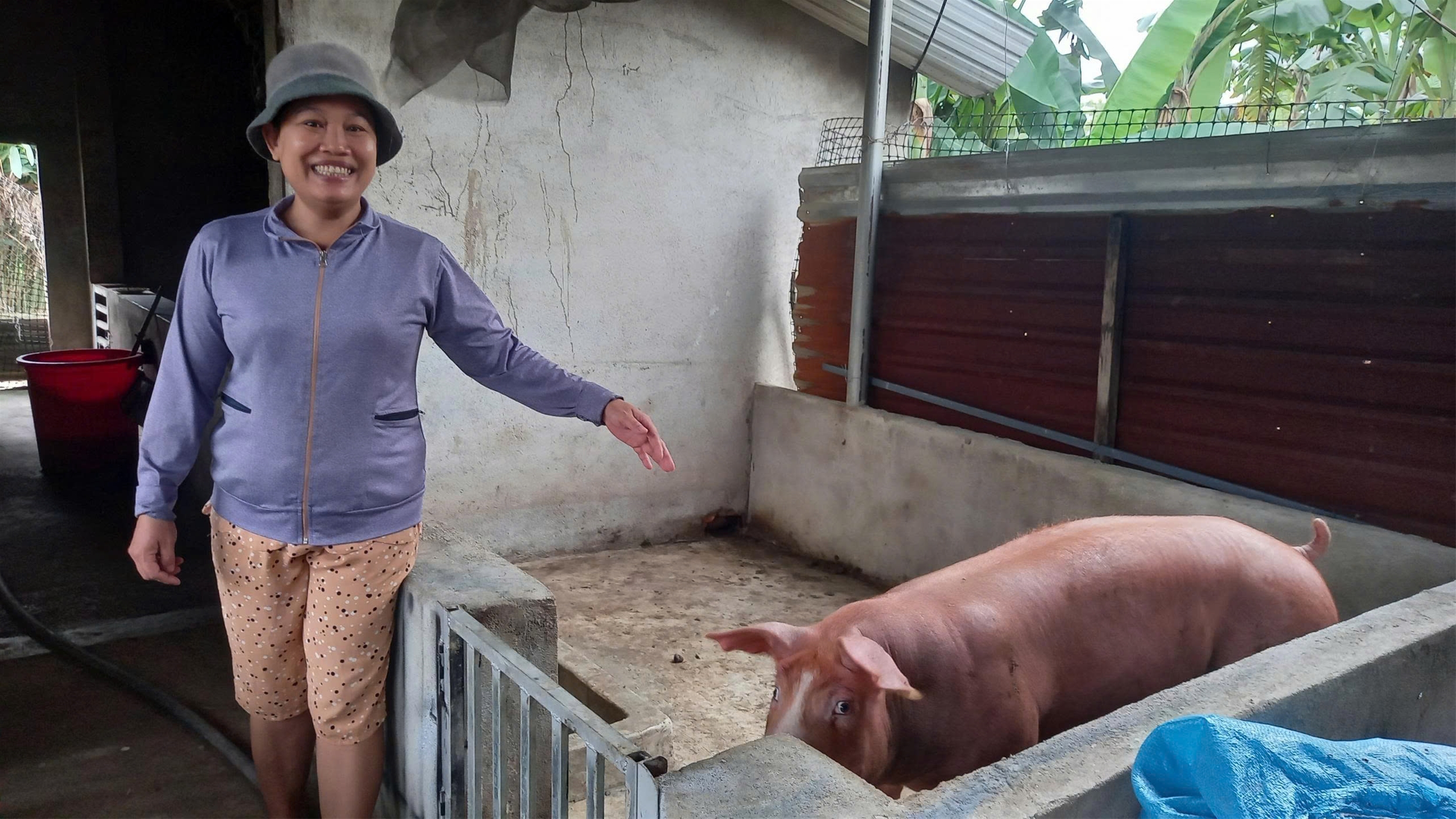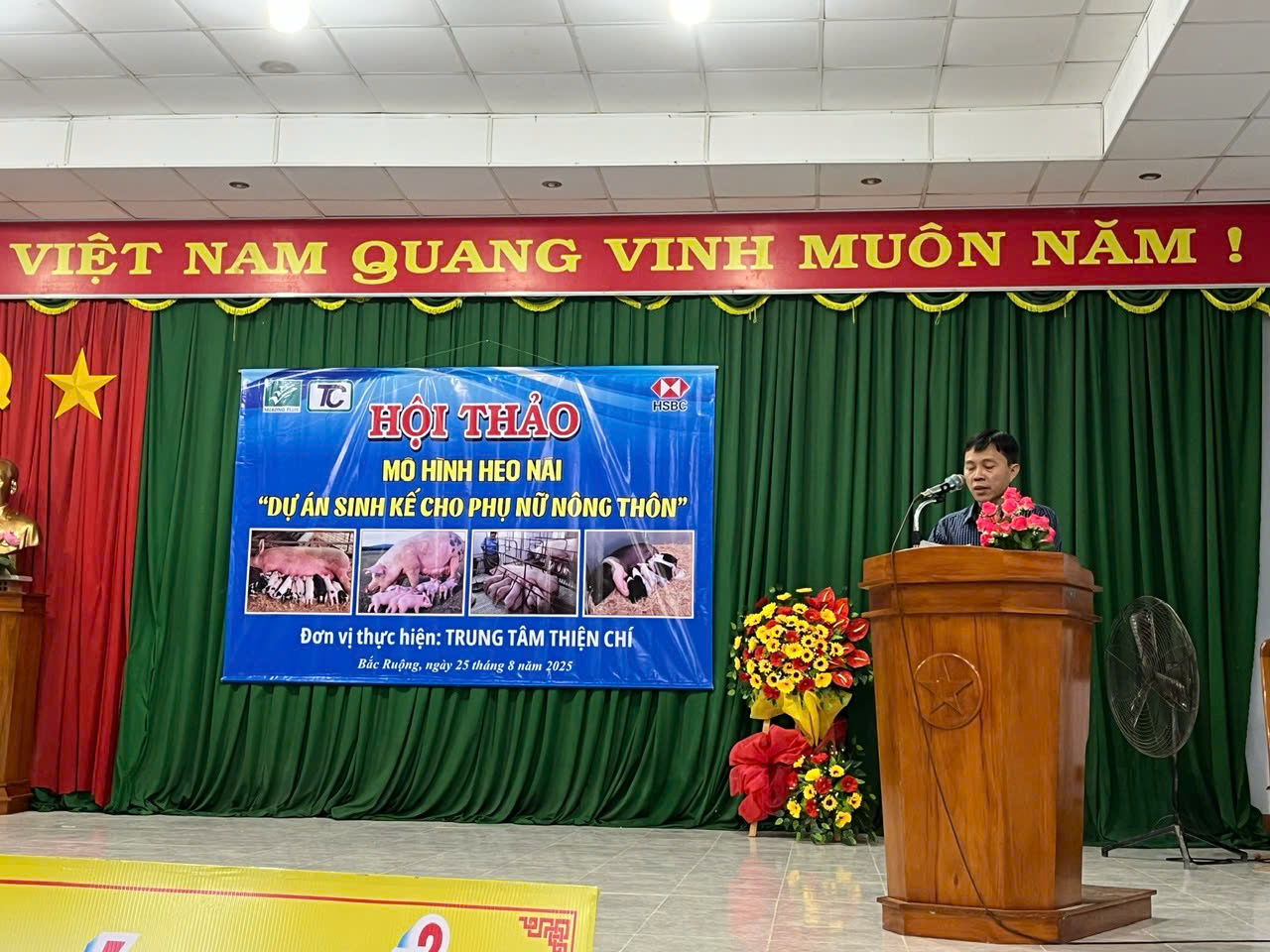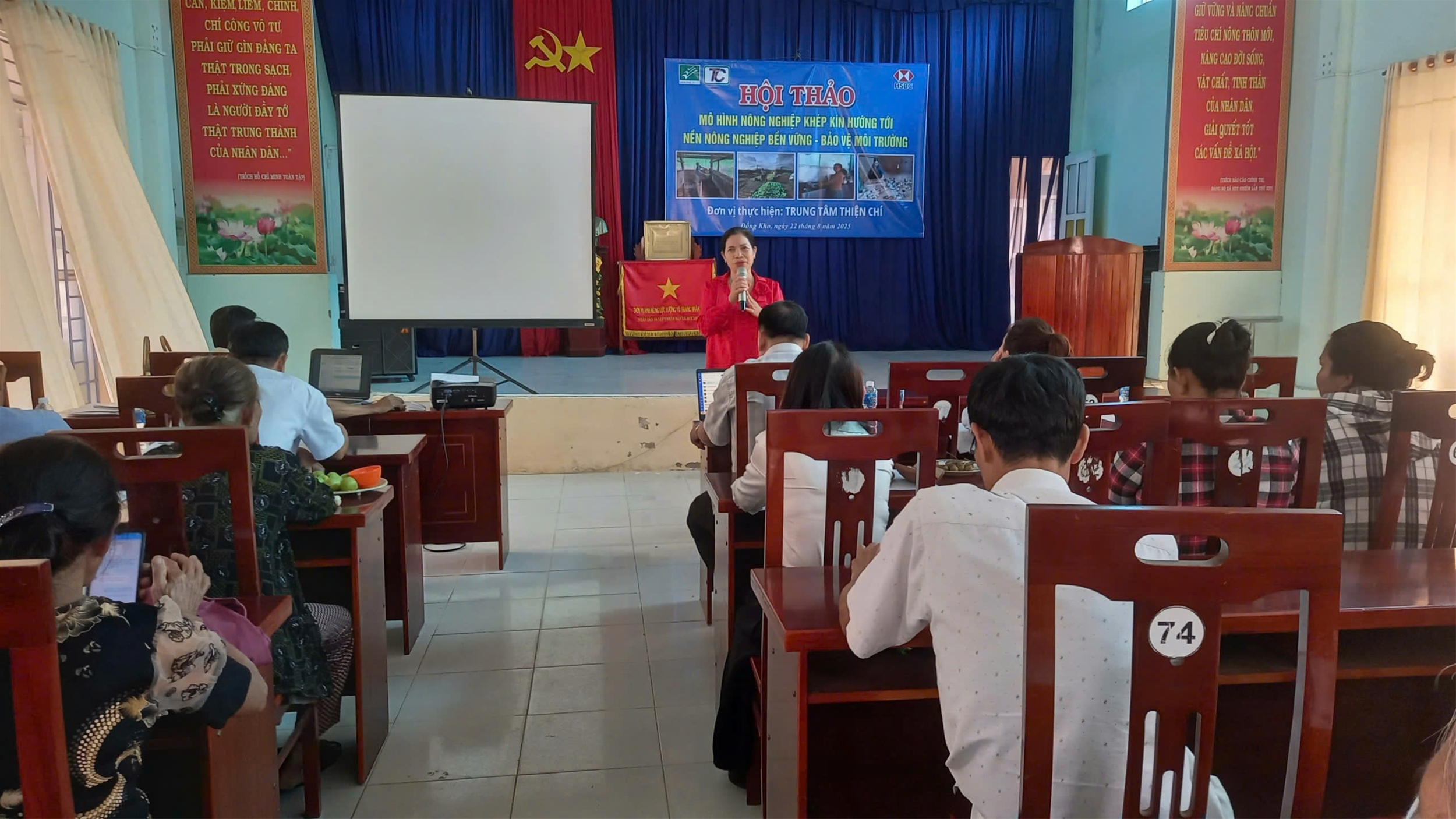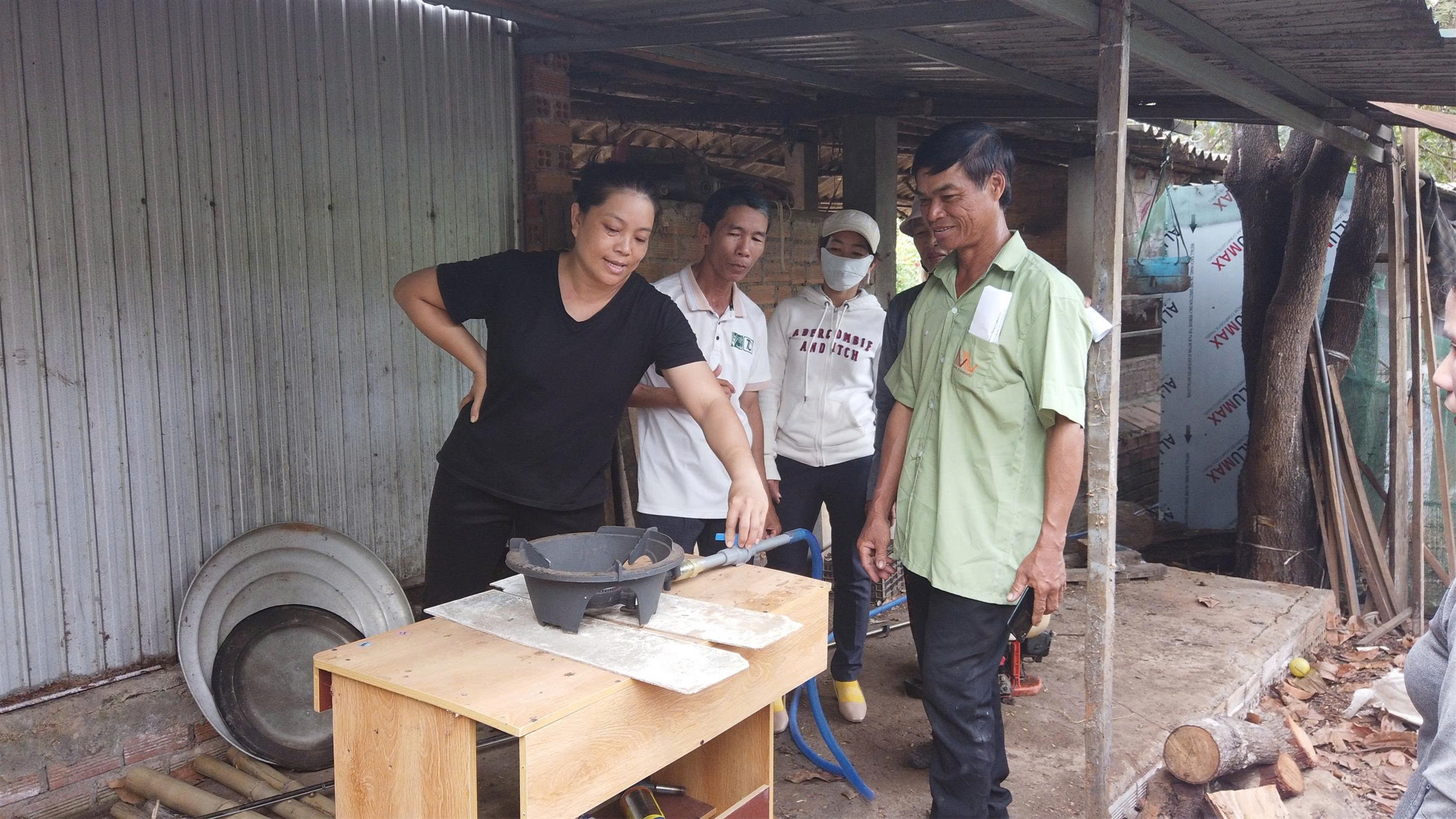From September 2024 to September 2025, the project “Economic Empowerment through Sustainable Agriculture for Families in Tanh Linh, Binh Thuan”, funded by HSBC and implemented by Thien Chi Center (Mekong Plus’s partner in Vietnam), has already achieved remarkable results. The project aims to support agricultural households through capacity building, access to sow banks, and technical assistance, while also promoting sustainable agricultural practices that protect the environment and help cover educational costs for children.

To date, 36 households have engaged in the Breeding Sow Bank model and 24 households have adopted the closed-loop sustainable agriculture model, thereby attaining 100% of the projected targets. In August 2025, two dissemination workshops were organized in Dong Kho and Bac Ruong communes, attracting the participation of 126 farmers and local officials. These workshops provided a structured forum for reviewing achievements, articulating challenges, and formulating collective strategies for improvement and replication.

The outcomes have been highly valued by both local farmers and authorities. The Breeding Sow Bank has played a crucial role in restoring pig herds after recent outbreaks, enabling families to rebuild their livelihoods. Meanwhile, the closed-loop sustainable farming model has not only helped households increase income but also integrated economic development with environmental protection, aligning with local priorities and global sustainability trends.

Following the workshops, interest from the community has continued to grow. Many households expressed their wish to expand into combined models such as the Breeding Sow Bank with Biogas systems, reinforcing their confidence and eagerness to scale up these initiatives in the future. Local leaders also voiced strong support, hoping the project will continue to reach more households, improve economic conditions, and contribute to poverty reduction in environmentally sustainable ways.
HSBC, Mekong Plus, and Thien Chi Center believe that linking economic development with sustainable agriculture will not only lift families out of poverty, but also pave the way for a greener, more resilient future for generations to come. 